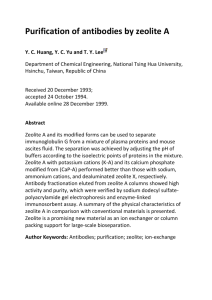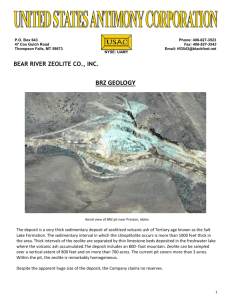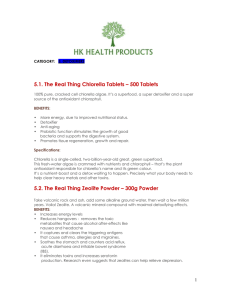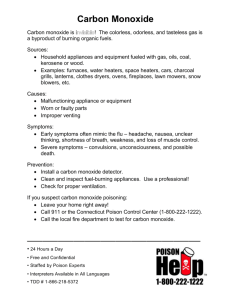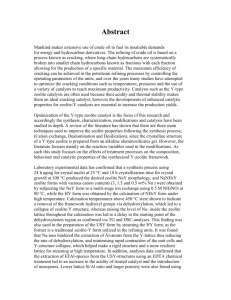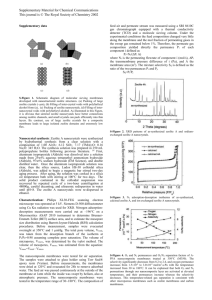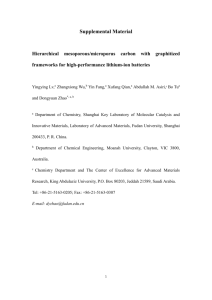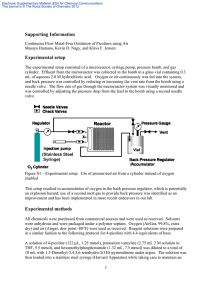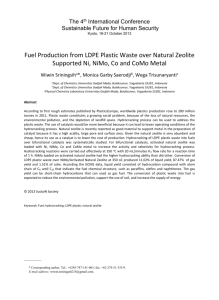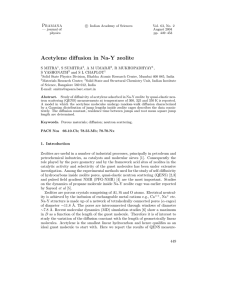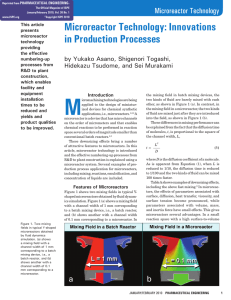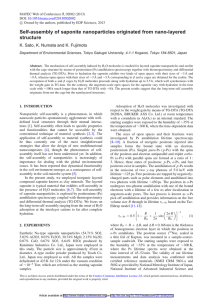Hydrogen purification from carbon monoxide for fuel cells
advertisement
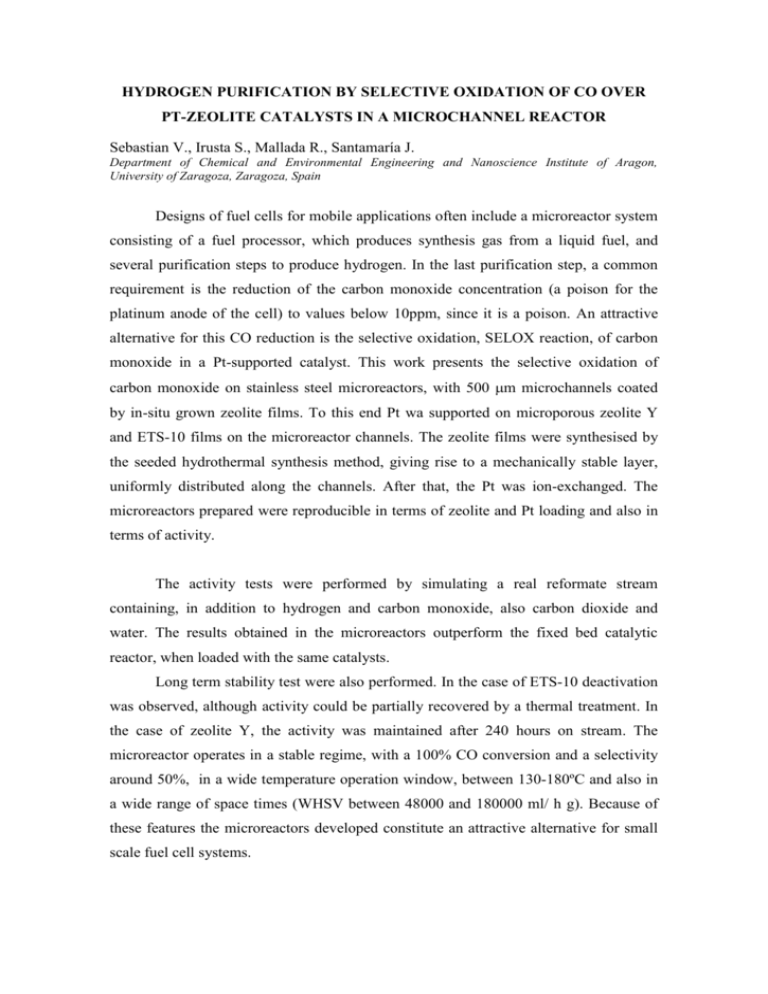
HYDROGEN PURIFICATION BY SELECTIVE OXIDATION OF CO OVER PT-ZEOLITE CATALYSTS IN A MICROCHANNEL REACTOR Sebastian V., Irusta S., Mallada R., Santamaría J. Department of Chemical and Environmental Engineering and Nanoscience Institute of Aragon, University of Zaragoza, Zaragoza, Spain Designs of fuel cells for mobile applications often include a microreactor system consisting of a fuel processor, which produces synthesis gas from a liquid fuel, and several purification steps to produce hydrogen. In the last purification step, a common requirement is the reduction of the carbon monoxide concentration (a poison for the platinum anode of the cell) to values below 10ppm, since it is a poison. An attractive alternative for this CO reduction is the selective oxidation, SELOX reaction, of carbon monoxide in a Pt-supported catalyst. This work presents the selective oxidation of carbon monoxide on stainless steel microreactors, with 500 m microchannels coated by in-situ grown zeolite films. To this end Pt wa supported on microporous zeolite Y and ETS-10 films on the microreactor channels. The zeolite films were synthesised by the seeded hydrothermal synthesis method, giving rise to a mechanically stable layer, uniformly distributed along the channels. After that, the Pt was ion-exchanged. The microreactors prepared were reproducible in terms of zeolite and Pt loading and also in terms of activity. The activity tests were performed by simulating a real reformate stream containing, in addition to hydrogen and carbon monoxide, also carbon dioxide and water. The results obtained in the microreactors outperform the fixed bed catalytic reactor, when loaded with the same catalysts. Long term stability test were also performed. In the case of ETS-10 deactivation was observed, although activity could be partially recovered by a thermal treatment. In the case of zeolite Y, the activity was maintained after 240 hours on stream. The microreactor operates in a stable regime, with a 100% CO conversion and a selectivity around 50%, in a wide temperature operation window, between 130-180ºC and also in a wide range of space times (WHSV between 48000 and 180000 ml/ h g). Because of these features the microreactors developed constitute an attractive alternative for small scale fuel cell systems.
